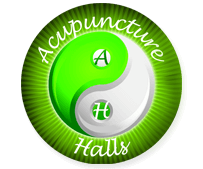
Dr. Martha Talks VDR
DR Martha E Hall DAOM, L.Ac, NCCAOM, ACN, CCWFN
“Baby it’s cold outside”, or soon it will be.
What are you doing to boost yours and your patient’s immune system? I am sure you are thinking of Vitamin D3? If you are not thinking of Vitamin D3, then you should be!
First of all, D is actually a steroid hormone and NOT a vitamin.
D is produced from cholesterol (yes, cholesterol does a body good) when your skin is exposed to the sun. However, nowadays the sun exposure is not sufficient enough to give the body ample amounts of D.
To absorb D from the sun you must be in the sun with pores open (sweating) and nothing on the skin for at least 20 minutes. There is also a war against skin cancer, so many people avoid the sun altogether.
So that is one of the many reasons 42% of the population is vitamin D deficient. According to https://www.cantonmercy.org/
So, you ask how do we get D?
Well, the sun’s energy takes a chemical and turns it into D3. Then from there it is carried to the liver where it picks up extra oxygen and hydrogen molecules to become 25-hydroxyvitamin D, or 25 (OH)D/calcidiol.
Calcidiol is what’s measured in blood tests to see if you are vitamin D deficient.
Even though labs use this form of D for diagnosis, it still can’t function till the next stop, which is the kidneys.
It is in the kidneys where it gets its final pair of oxygen and hydrogen molecules to become 1,25 dihydroxyvitamin D. This is the active steroid form of D3 called 1,25(OH)2D, or calcitriol.
From here on end let’s keep it simple (I like simple) and call it vitamin D, (even though it is a hormone).
D is needed for a whole list of things, such as:
○ Autoimmune disease
○ Cancers of all sorts
○ Low energy
○ Immune system which helps combat common colds and flu
○ Alopecia (yes, this is true)
○ Without D, dietary calcium is not absorbed
○ Bone growth such as rickets in children
○ Mood swings
○ Depression
○ Aches and pains
○ The list goes on and on and on.
What about those patients that are taking vitamin D, and yet they still are vitamin D deficient?
Well, I would say about 90% of “my” patients (and most likely yours as well) have a SNP called “VDR”.
SNP stands for single nucleotide polymorphism. (SNP is pronounced “snip”). In other words, a SNP is a snip of your DNA gene.
A SNP happens when a single nucleotide differs from the majority. I won’t go into too much details of SNPs as I’ll save that for another day. Just know VDR is a SNP.
This VDR gene provides instructions for making a protein called VDR receptor. This allows the body to respond to vitamin D.
Well, this VDR attaches to the active form of D.
This interaction allows it to partner with another protein called retinoid X receptor (RXR).
Oh, sorry I know that is not simple but hang on I promise it gets good.
These proteins attach to specific areas of DNA known as vitamin D response elements. It then regulates the activity of vitamin D responsive genes.
By turning these genes on or off, VDR helps control calcium. Along with calcium it controls hair growth. Hair growth as in alopecia.
BAM! There it is.
Alopecia is involved with D3 deficiency. https://www.ncbi.nlm.nih.gov/pubmed/27151518
Who knew? I didn’t. I have many patients with this embarrassing issue.
I, myself, have the VDR SNP which means I most likely can’t break down vitamin D without the aid of Vitamin A and Vitamin K.
I muscle test my patients to see if they can take D3 by itself and 9/10 patients test no until I add Vitamin A and vitamin K in their hand. When I add all 3 they test strongly.
I then test to see which D3 their body needs. I carry a few brands.
I will give you a clinical pearl. When patients test for no for vitamin D3 they usually have an autoimmune concern. Why? Because we all need to for the body to survive and keep its immune system strong.
I send my patients out for blood labs and my goal is to keep the D3 levels between 70-80. This can only be checked by blood test.
Again, this is Dr. Martha’s pearl and no medical diagnosis!
Adding these 3 beautiful immune support products will help enhance your patients: mood, energy, and more importantly their health. It will also help protect them from relapsing.
Chronic fatigue is a major symptom in many autoimmune issues. This protocol helps my patients go for months on end without a relapse.
They must stay consistent with these 3 products.
I read a study where 96% of people who had heart attacks were low in Vitamin D. WOW!
https://www.ncbi.nlm.nih.gov/pubmed/21439530
You want to understand this difference between Vitamin D2 and D3.
D2 occurs in plants where D3 is produced in response to sun exposure. D3 is what you want since it is significantly more effective in raising D blood levels.
If you ask me which vitamin is most important for our body. I would say hands down vitamin D3.
Think about if you are low in any other vitamin, such as A, B, C, E, etc. The side effects of each of those compared to low vitamin D is a big difference.
I for one do not want to be low in D. Do you?
I personally want to use D3 for myself and my patients because it is helping all my autoimmune compromised patients along with my VDR methylation deficient patients.
Adding D3 along with vitamin A & vitamin K to your patient’s daily regime is keeping me way ahead of the curve.
I hope you are too!
